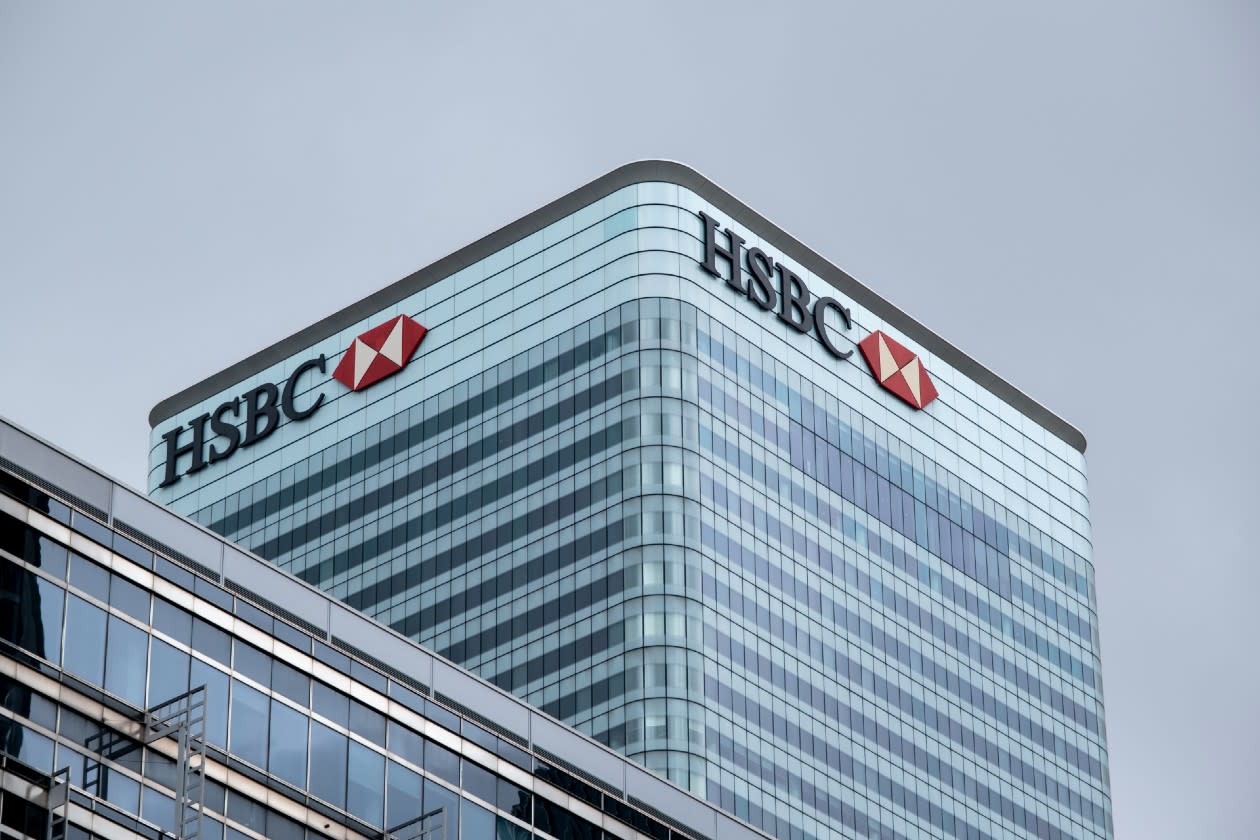HSBC reported a 3% rise in underlying third-quarter revenue to $17.9bn (which ignores currency and one-off items). Growth was driven by banking net interest income and strong wealth fees.
Underlying profit before tax rose 3% to $9.1bn. Not included in that figure was a $1.4bn legal provision, including $1.1bn related to the Madoff case. Credit impairments were broadly flat at $1.0bn.
The CET1 ratio, a key measure of financial resilience, was 14.5% (14.0–14.5% target range). A quarterly dividend of $0.10 per share was announced, following the completion of a $3bn buyback.
Full-year guidance was upgraded, with banking net interest income now expected to reach $43bn or better (previously $42bn).
The shares rose 2.8% in early trading.
Our view
Third-quarter results painted an encouraging picture, and management sounded a confident tone on the call. Guidance was nudged higher, though we think it’s still a little conservative and see the $43bn net interest income target as an easy hurdle to clear.
HSBC’s plan to fully acquire Hang Seng Bank has sparked concern over capital allocation. Buybacks would give a more immediate boost to earnings, and it adds exposure to Hang Seng’s bad debts. Management argues that this is a depressed asset with room to grow. There’s logic in that, but with HSBC already in control, we’re not convinced this is the best use of its capital buffer.
Efforts to refocus the business on higher growth areas continue. HSBC has already made several changes, including selling its retail banking operations in France and completely exiting Canada and Argentina. Latest plans involve reducing costs by around $3bn in the coming years, with around half passing through to the profit line and half reinvested.
Traditional banking is the key driver of income, but finding growth has been a bugbear. Loan growth is low and expected to stay that way, but there is a tailwind from higher interest rates in Hong Kong that should flow through over the fourth quarter.
Fee income is also key, from areas like trading and wealth management. Interest rates and consumer confidence still impact some income streams, but not to the extent of more traditional banking operations.
The diversification is welcome, and the Asian focus is a positive when it comes to areas like wealth management, with this being a high-growth part of the market. HSBC has leadership positions, so looks well placed to benefit. But there are still question marks over recent growth and whether it can be sustained.
If approved, the Hang Seng deal will dent capital levels, with share buybacks on hold for a few quarters to rebuild that buffer. We are also keeping an eye on non-performing loans; HSBC has historically been seen as a leader among its Asian peers, but a tick higher in recent years has eroded that position. We aren’t concerned, but it’s something to monitor.
The global focus is a differentiator from many of its peers, and HSBC is our preferred UK-listed name for Asian exposure. That said, we think UK focused banks have a much clearer path to growth over the medium term.
Environmental, Social and Governance (ESG) risk
The financials sector is medium-risk in terms of ESG. Product governance is the largest risk for most companies, especially those in the US and Europe with enhanced regulatory scrutiny. Data privacy and security is also an increasingly important risk for banks and diversified financial firms. Business ethics, ESG integration and labour relations are also worth monitoring.
According to Sustainalytics, HSBC’s management of material ESG issues is strong.
HSBC faces risks from business ethics and product governance due to its involvement in related lawsuits and investigations. The $1.1bn provision set aside for the Madoff case is an example of a legacy issue working through the system, though at around 0.5% of the groups market cap it’s not a huge dial mover.
Policies against money laundering, bribery, and corruption also have gaps. Although HSBC's credit and loan standards generally meet industry norms, its approach to client engagement on climate issues, particularly in Asia, lacks sufficient evidence.
HSBC key facts
All ratios are sourced from LSEG Datastream, based on previous day’s closing values. Please remember yields are variable and not a reliable indicator of future income. Keep in mind key figures shouldn’t be looked at on their own – it’s important to understand the big picture.
This article is original Hargreaves Lansdown content, published by Hargreaves Lansdown. It was correct as at the date of publication, and our views may have changed since then. Unless otherwise stated estimates, including prospective yields, are a consensus of analyst forecasts provided by LSEG. These estimates are not a reliable indicator of future performance. Yields are variable and not guaranteed. Investments rise and fall in value so investors could make a loss.
This article is not advice or a recommendation to buy, sell or hold any investment. No view is given on the present or future value or price of any investment, and investors should form their own view on any proposed investment.


